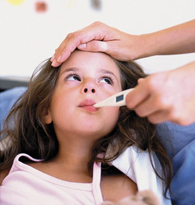A sore throat is a throat infection typically brought about by the bacteria Streptococcus where it is called as “strep throat”. It is important to note that strep throat can result to severe issues such as rheumatic fever which is why treatment is essential.
Indications
- Fever, usually higher than 100 degrees F
- Redness in the rear part of the throat
- Headache
Provide the child with the prescribed medications as instructed by the doctor. - Stomach ache
- Appetite loss
- Painful swallowing
- Swollen glands in the neck
- Tiredness
Does my child have strep throat?
The doctor will perform a throat culture to check if the sore throat is caused by the Streptococcus bacteria. During the test, a cotton swab is brushed across the rear part of the throat and sent to the laboratory for testing.
In case the test of the result is positive, the doctor might prescribe antibiotics for the child. Always bear in mind that strep throat can spread via exposure with saliva and mucus and one is still contagious until the antibiotics have been taken for 24 hours.
Caring for a child with sore throat or strep throat
- Provide the child with the prescribed medications as instructed by the doctor
- Provide acetaminophen for fever especially children
- Ensure that the child is given enough fluids
- Provide the child with soft or cold foods that can ease the throat pain
- Children over 8 years of age can be given a gargle of warm salt water
- Lozenges or hard candy can be given to the child (children older than 4 years of age)
When to consult a doctor
- Fever is still present even after taking antibiotics for 2 days
- Skin rash
- Earache
- Increased throat pain or discomfort
- Difficulty breathing
- Severe headache
- Excessive drooling
- Shortness of breath
- Cough
- Dark-colored urine, chest pain or rash (might arise 3-4 weeks later)
- Sore throat that lasts longer than 4 days

